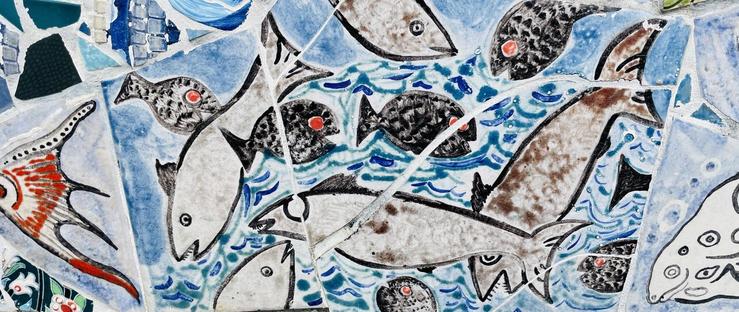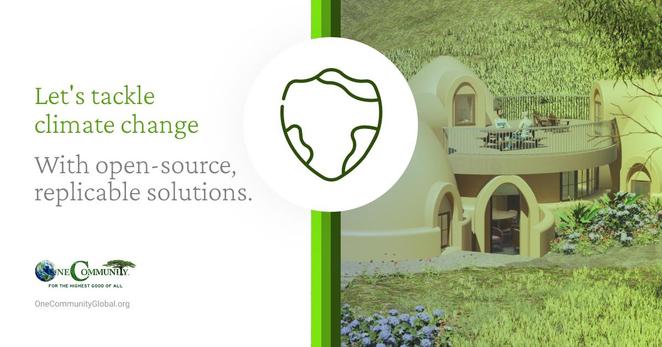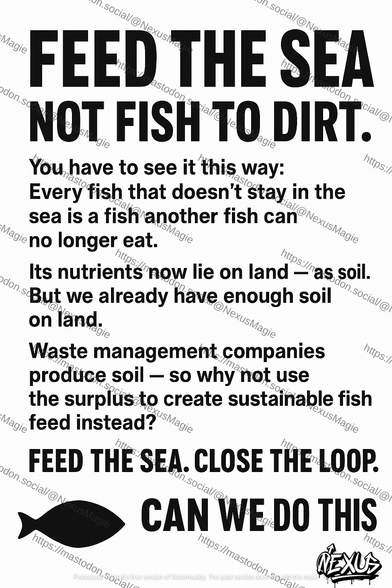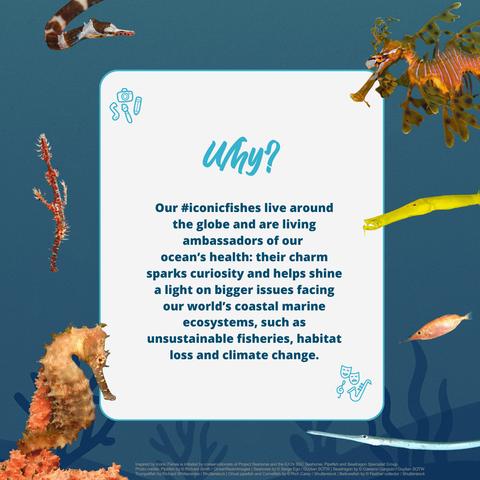New study reveals 12 years of change in nearshore fish communities in the Solent Estuary. Functional metrics like #FEAS highlight key nursery habitats for restoration: https://doi.org/10.1111/jfb.70171 #EstuarineEcology #FishBiology #MarineConservation
#MarineConservation
The importance of talking about Global Warming: shocking speeches
pollution control bamber bridgeGlobal Warming is an increasingly relevant topic in today’s world. As global temperatures continue to increase and the effects of climate change become more evident, it is essential that we all become aware of this crisis and take measures to stop their progress. A great way to do it is through shocking speeches about Global Warming, which can inspire people to take concrete actions to protect our planet.
Why is it important to talk about Global Warming?
Global Warming is a problem that affects everyone, regardless of our geographical location, race or social status. It is a phenomenon that arises mainly as a result of the accumulation of greenhouse gases in the atmosphere, caused mostly by human activity. These gases catch the heat of the sun and make the temperature of the earth increase, generating negative impacts on our ecosystems, biodiversity and even our own health.
When talking about Global Warming, we can inform and educate society about the effects and consequences of this phenomenon. This helps to raise awareness and mobilize people to be interested and join actions that promote mitigation and adaptation to climate change.
The power of speeches on Global Warming
Speeches on Global Warming have the power to influence people emotionally. They are an effective tool to transmit clear and forceful messages about the importance of curbing the progress of this problem. A good speech can awaken the passion and motivation of the audience, and take them to action.
To create an effective discourse on Global Warming, it is necessary to investigate and collect relevant and updated information on the causes and consequences of Global Warming. It is important to use scientific data and concrete examples to support our statements, since this helps strengthen the credibility of the discourse and generate confidence in the audience.
Components of a shocking speech on Global Warming
A shocking discourse on Global Warming must be structured clearly and concisely, with a powerful introduction that captures the attention of the audience and establishes the relevance of the subject. Next, scientific facts and evidence on Global Warming must be presented, highlighting the importance of taking urgent measures to stop their progress.
It is essential to use clear and accessible language, avoiding technicalities that can hinder the understanding of the audience. Using concrete and anecdotal examples can also help the audience to connect emotionally with the issue.
In addition, it is important to provide specific solutions and proposals that the audience can apply in your daily life. This may include individual actions, such as reducing energy and water consumption, recycling and using public transport, as well as collective actions, such as participating in social and political movements that promote responsible environmental policies.
The importance of practice and passion in speeches on Global Warming
Practice is essential to achieve a shocking discourse on Global Warming. It is important to rehearse several times and adjust the speech according to the needs of the audience. This allows us to identify the parts of the speech that generate greater impact and improve the communication of our ideas.
In addition, it is essential to speak with passion and conviction on the subject. The passion is contagious and can inspire the audience to act. By transmitting our enthusiasm for the subject, we generate empathy and motivation in those who listen to us.
Conclusion
Talking about Global Warming is crucial in the fight against climate change. The speeches on this issue have the power to inform, educate and motivate society to take concrete measures to stop the progress of this problem. By using scientific data, specific examples, practical solutions and talking with passion, we can create shocking speeches that generate a real impact on society and help build a more sustainable future for all.
devices to reduce pollutionDive into Gringud.com for a closer look at the impact of climate change on marine life and the importance of ocean conservation efforts. ?? #MarineConservation #OceanHealth
The importance of talking about Global Warming: shocking speeches
Dive into Gringud.com for a closer look at the impact of climate change on marine life and the importance of ocean conservation efforts. ?? #MarineConservation #OceanHealth
Hugelkultur: This is how you grow a typical garden without water or fertilizer. https://richsoil.com/hugelkultur/
#OceanPollution #PlasticAwareness #MarineConservation #ProtectOurOceans #EnvironmentalAction #Sustainability #ClimateAwareness #CleanSeas #StopPlasticPollution #SaveThePlanet
How to make sustainable seafood choices this Christmas to ease the pressure on Australia’s oceans
"Last year the market traded about 350 tonnes of seafood over the Christmas period, with 120t of prawns and 70,000 dozen oysters among the top sellers...Australian Marine Conservation Society’s GoodFish guide aims to showcase the most environmentally friendly seafood sources."
>>
https://www.theguardian.com/environment/2025/nov/22/how-to-make-sustainable-seafood-choices-this-christmas-to-ease-the-pressure-on-australias-oceans
'Sustainable Fishing' is a Lie
"Fishing sustainability is based on a pseudoscientific theory that justifies taking the most marine life for maximum profit. Sustainable fishing is a deception, a myth motivated by the ideology that life on Earth belongs to humankind."
>>
https://www.currentaffairs.org/news/sustainable-fishing-is-based-on
#ocean #MarineConservation #biodiversity #wildlife #MarineLife #SustainableSeafood #prawns #BBQ #FishNChips #seafood #salmon #Christmas #OverFishing #stocks #yield #MSY #fishing #regulations #extraction #FoodWebs
Ocean life mural, Mid North Coast, NSW
Are you inspired to illustrate the other #IconicFishes? Or to highlight?
Anyone can participate in the new arts movement #InspiredByIconicFishes:
https://www.iconicfishes.art/participate
Please take a look, boost, & help spread the word about alternative lifestyles.
🧵 8/
#MarineConservation #ArtAndNature #ocean #ecology #conservation #OceanArt #EnvironmentalArt #ArtAndEcology #EcoArt #seahorse #pipefish #trumpetfish #cornetfish #flutemouth #BellowsFish #seadragon
The invitation to participate in the global arts movement #InspiredByIconicFishes is now available in simplified & traditional Chinese, & in French:
https://www.iconicfishes.art/resources
Looking forward to more languages, & seeing more art inspired by #IconicFishes. Please see our ambitions, & boost!
@goodnews @nature
#MarineConservation #art #music #dance #sculpture #biology #conservation #ecology #ocean #SaveOurSeas #seahorse #pipefish #seadragon #OceanArt
Kelp forest off Cape Town provides inspiration for local chef http://newsfeed.facilit8.network/TPGWsc #Kelp #SustainableSeafood #CapeTownEats #MarineConservation #SeaweedCuisine
Du khách đã tự nguyện trả lại đá biển cho đảo Cô Tô (Quảng Ninh) sau khi đọc bài viết trên VietNamNet về hoạt động trồng và nhân giống san hô của đội thanh niên tình nguyện. Hành động này thể hiện ý thức bảo vệ môi trường biển, lan tỏa thông điệp tích cực về du lịch có trách nhiệm.
#Environment #MarineConservation #CoralRestoration #CoTo #SustainableTourism #BảoVệMôiTrường #BảoTồnSanHô #DuLịchBềnVững #CôTô #ÝThứcDuKhách
https://vietnamnet.vn/du-khach-tra-lai-da-bien-cho-co-to-sau-khi-doc-bai-t
Global Warming: APA IU DAN DAMPAKNYA?
lincoln ne environmentalismGlobal Warming, Atau Pemanos Global, Adalah Phenomena Peningkatan Suhu Rat-Rata Permukaan Bumi Dalam Skala Global. Istilah Ini Mengacu Pada Peningkatan Suhu Yang Telah Terjadi SEJAK PERCENGAHAN ABAD KE-20 DAN DIPERCEPAT SEMAMA BABYAPA DEKADE TERAKHIR INI. Global Warming Disababkan Oleh Peningkatan Kensrasi Gas Rmah Kaca Di Atmosfer, Yang Sebagian Kiss Disababkan Oleh Akivitas Manusia Seperti Pmbakaran Bahan Bakar Fosil, Deforestasi, Dan Produksi Industri Yang Berlebihan.
Apa iTu Gas Rumah Kaca?
Rumah Kaca Adalah Gas-Gas Yang Tordapat Di Atmospher Yang Menyebabkan Efek Rumah Kaca. Efek Rumah Kaca Adalah Mekanisme Alami Yang Memungkinkan Bumi Untuk Memperthankan Sugu Yang Nyaman Bagi Kehidupan. Tanpa Efek Rumah Kaca, Suhu Permukaan Bumi Akan Sangat Rendah. Namun, Peningkatan Ekstrim Dalam Kensrasi Gas Rumah Kac
Babrapa Gas Rumah Kaca Utama Yang Paling Berkontribusi Terhadap Global Warming Adalah Karbon Dioksida (CO2), Metana (CH4), Dan Oksida Nitrat (N2O). Gas-Gas Ini Dilepaskan Ke atmospher Melalui Berbagai Aktivitas Manusia Termasuk Pmbokaran Bahan Bakar Fosil, Produksi Daging, Dan Pertanian Intelligo.
Global Warming Dampak
Peningkatan Suhu Permukaan
Peningkatan Suhu Permukaan Bumi Memiliki Dampak Yang Signifikan Pada Iklim Global. Pencairan is Di Kutub Dan Pegunangan Meningkat Dry Drastis, Menyebabkan Kenaikan Permukaan Air Laut Yang Berdampak Bestar Pada Pulau-Pulau Kecil Dan Pesisir. Selain Itu, Peningkatan Suhu play Menyebabkan Perubahan Pola Cuaca, Termasuk Peningkatan Kejadian Cuaca Ekstrem Seperti Badai Yang Lebih Intens
kerusakan lingkungan
Global Warming Play Memiliki Dampak Serius Pada Ekosystem Dan Bulkai Spesies di Seluruh Dunia. Pemanasan Suhu Yang Cepat Mengubah Habitat Alami Dan Mengancam Kelangsungan Hidup Blesses Spesies, Termasuk Hewan, Tumbuhan, Dan Mikroorganisme. Contohnyya, Banyak Spesies Koral Yang Mengalami Pemutihan Karena Air Laut Yang Terlalu Tinggi Danpat Menyebabkan Kematian Mereka.
Penyebaran Penyakit Dan Kesehatan
Peningkatan Suhu Dan Perubahan Pola Cuaca Berkontribusi Pada Penyebaran Penyakit. PERUBAHAN IKLIME AMBLANKAN KONDISI YANG LEBIH MENGUNTUNGKAN BAGI NYAMUK PEMBAWA PENYAKIT SEPERTI MALARIA, DEMAM BERDARAH, Dan Zika. LEBIH DARI ITU, PAPARAN PANAS EKSTREM JUGA DAPAT MENYEBABKAN RISIKO KESEHATAN BAGI POPULASI YANG LEBIH RENT, TERMASUK ORANG TUA, ANAK-ANAK, DAN MERKA DENGAN KONDISI MEDIS YANG MENDASAR.
APA YANG DAPAT KITA LAKUKAN?
Mengurangi emisi gas rumah kaca
Untuk Mengatatasi Masalah Global Warming, Kita Peru Mengurangi emisi Rumah Kaca Yang Dihasilkan Oleh Akivitas Manusia. INI DAPAT DILAKUKAN DENGAN MENGURANGI PENGGUNAAN BAHAN BAKAR FOSIL, MENINGKATKAN EFISIENSI Energi, Menggunakan Energi Terbarukan, Dan Mengubah Pola Konsumsi Masyarakat Kita.
PEMULIHAN EKOSISTEM
kita play melakukan upaya pemulihan ekosystem yang Russak akibat Global Warming. Hal Ini Dapat Meliputi Upaya Reboisasi Untuk Merestorasi Hutan Yang Telah Tordeforestasi, Melindungi Terumbu Karang Yang Terancam, Dan Memulihkan Lahan Basah Yang Penting Untuk Mejaga Keberlanjutan Alam.
PENDEKATAN ADAPTASI
PENDEKATAN ADAPTASI PENTING DALAM MENGHADAPI DAMPAK GLOBAL WARMG YANG SUDAH TIDAK DAPAT DIFTARI. Langkah Seperti Membangun Tanggul Laut Untuk Melindungi Pesisir, Meningkatkan System Peringatan Dini Untuk Bencana Alam, Dan Mengembrangkan Teknologi Yang Dapat Mempe Mebantu Kita Beradaptasi dengan Perubahan Iklim.
Kesimpulan
Global Warming Adalah Phenomena Pemanosan Sugu Rat-Rata Permukaan Bumi Yang Disababkan Oleh Peningkatan Kensrasi Gas Rumah Kaca Akibat Akivitas Manusia. Dampak Dari Global Warming Sangat Luas, Termasuk Peningkatan Suhu Permukaan, Kerusakan Lingkungan, Dan Risiko Ksehatan Yang Meningkat. Untuk Mengatatasi Masalah Ini, Kita Peru Mengurangi emisi gas Rumah Kaca, Memulihkan Ekosystem, Dan Mengambil Pendakatan Adaptasi Yang Diperlukan Untuk Menghadapi Dampak Yang Sudah Ada. DENGAN LANGKAH-Langkah Ini, Kita Dapat Memperhankan Bumi Kita Teptap BerkeLanjutan Bagi Generasi Mendatang.
scale of air pollutionDive into Gringud.com for a closer look at the impact of climate change on marine life and the importance of ocean conservation efforts. ?? #MarineConservation #OceanHealth
Global Warming: APA IU DAN DAMPAKNYA?
Dive into Gringud.com for a closer look at the impact of climate change on marine life and the importance of ocean conservation efforts. ?? #MarineConservation #OceanHealth
https://ibizaund.wordpress.com/2025/11/11/global-warming-apa-iu-dan-dampaknya/
Shocking to read that Tassal has had a major fish-kill at its barramundi farm in the remote Buccaneer Archipelago/Cone Bay region of WA while simultaneously pushing ahead with plans to ramp up production. 
What concerns me deeply is this expansion ambition — from roughly 2 000 tonnes a year to potentially 17 500 tonnes — in a globally significant and delicate marine ecosystem. 
The story doesn’t revisit the wider track‐record of salmon-farm related mortality and ecosystem impacts, yet the parallels are painfully obvious. We should be asking: are we repeating history rather than learning from it?
#environmentjustice #aquaculture #kimberleycoast #marineconservation #tassal
Two powerful artworks by Pangrok Sulap are now on display in the beautiful space of St Bene't's in Cambridge:
https://www.stbenetschurch.org/laut
📷 Revd Devin McLachlan
🧵 1/2
#sealife #StBenetsCam #BottomTrawling #ocean #pollution #MarineConservation #PangrokSulap #IconicFishes #Cambridge
Researchers across the globe are tracking ocean currents to map how floating plastic travels through the Pacific and beyond. Every bottle, bag, or straw plays a part in shaping these massive gyres of waste. Understanding this movement is the first step toward cleaning our oceans and protecting marine life. 🌎🐠
#PlasticPollution #OceanCleanup #MarineConservation #PlasticChange #SaveOurOceans #EnvironmentalAwareness
Eat the invaders!
Interventions for conservation:
https://www.endangeredlandscapes.org/news/gokova-bay-what-monitoring-reveals-about-marine-recovery/
#EatEmToBeatEm #MarineProtectedArea #Gökova #Göcek #Türkiye #MarineConservation
Want a New Year's resolution that will save you time, money, water, and put less toxic gick on your body? Consider going "Poo-less". The One Community core team does this and we'd definitely recommend it. Your skin will be healthier and you will still smell good. Don't take our word for it though, here's an excellent Podcast by Paul Wheaton talking about his 2-year experience with this.
#PlasticPollution #OceanCleanup #MarineConservation #PlasticChange #SaveOurOceans #Sustainability
Das sind ja ganz komplexe Nährstoffe die einfach an Land landen, und im Meer nicht verfügbar sind.
Allerdings wachsen Fische auch schnell und haben damit eine schnellere Regeneration im Ökosystem als .Landtiere
#FeedTheSea #SaveOurOceans #OceanAwareness #MarineConservation #BluePlanet #CircularEconomy #SustainableFuture #WasteToValue #EcoInnovation #ZeroWaste #FutureIsNow #fridaysforfuture #eco #fishing #fish #sea #sex #porn #antifa
@pirarucu #welcome! I will look forward to your posts on these topics. I've been on Mastodon for a while but just set up a new account which may be of interest - please see my own intro, & look up @iconicfishes & @projectseahorse
#MarineBiology #MarineLife #RiverLife #MarineConservation #Sealife #ocean
Ever seen #seahorses, #pipefishes, #seadragons & their quirky cousins take centre stage in an arts movement? Now you have. 👉 Scroll through to discover what Inspired by Iconic Fishes is all about
How to take part?
Start by exploring our inspiration kit on www.iconicfishes.art
💙💪Together, let’s give these fishes the spotlight they deserve 💪💙
Clean Rivers partners with Ellen MacArthur Foundation to address plastic waste infrastructure gaps in key countries. . #climatechange #climatesolutions #climate #CircularEconomy #RecycledPlastics #Sustainability #Environment #MarineConservation
https://www.ellenmacarthurfoundation.org/news/clean-rivers-joins-ellen-macarthur-foundation-to-tackle-plastic-waste










